From Strawberry Roots To Berry Innovation: Nourse Farms CEO Shares Insights On Expansion, New Opportunities
From its beginnings as a local strawberry nursery in 1932, Nourse Farms has evolved into an internationally recognized soft fruit nursery. Indoor Ag-Con is pleased to have Nourse Farms as an exhibitor for our March 11-12, 2024 edition in Las Vegas. We had the opportunity to catch up with CEO John Place to learn more about the company’s rich history, exciting expansion plans, state-of-the-art tissue culture labs and greenhouses in this month’s CEA Q&A. Read on to learn how this industry leader is not only adapting to changing market dynamics but also shaping them, as Nourse Farms positions itself to meet the evolving needs of berry growers worldwide, especially in the controlled environment agriculture sector.
Nourse Farms has a rich history dating back over 90 years. Can you share some key milestones in the company’s journey and how these have shaped its commitment to innovation and quality?
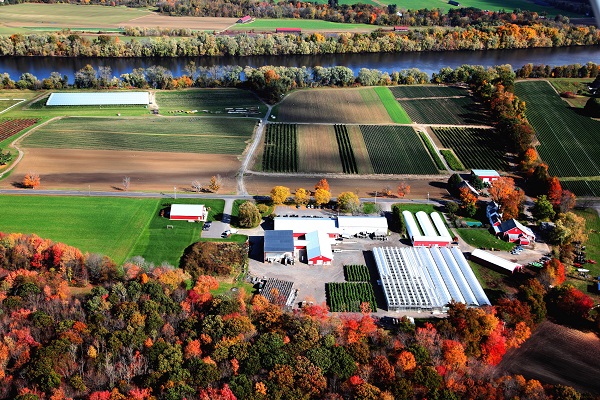
With Nourse Farms being around for almost a century, we’re fortunate to have a number of milestones that emphasize our commitment to innovation and delivering quality. Some highlights include:
- 1932: The farm was established as a strawberry plant nursery
- 1978: Raspberry plants added to the product mix
- 1980: The first tissue culture lab built
- 1982: Customized cooling facility built, allowing for storage of dormant, bare root plants
- 2003: Blackberry plants added to the product mix
- 2019: The first commercial planting of tray plants (strawberries) and long canes (brambles)
- 2020-2022: The continued expansion of tray plants and long canes
- Present: A major expansion of our lab, greenhouses, and growing facilities that is intended to not only increase our footprint, but also amplify our commitment to innovation, as we will be using cutting-edge technologies to help us grow the cleanest, highest quality plants possible.
The recent announcement about your expansion plans and partnership with an investment firm are exciting and significant developments for Nourse Farms. Could you elaborate on the strategic goals behind the expansion and how it positions the company to meet the evolving needs of berry growers worldwide, especially in the CEA sector?
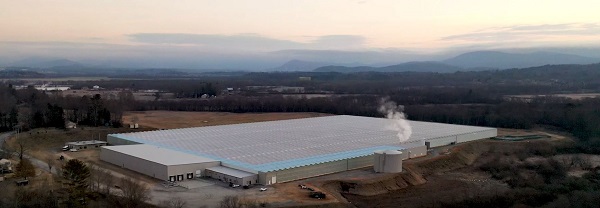
Nourse Farms has focused on delivering the highest quality plants and exceptional customer service to the berry industry for decades. We are sitting at a pivotal point in North American berry farming where consumer demand is growing alongside new production techniques that are game-changers to the industry. Our goal is to secure our position as the market leader in berry plant propagation in North America. With that in mind, we are making a significant investment in our growing facilities in multiple locations to grow the highest quality plants for our customers.
We will now be growing in three distinct climates (Massachusetts, Washington, and North Carolina) so that the variety selection and plant type we have for our customers is grown in the best climate for its purpose. The new tissue culture lab, greenhouses, tray fields, trellis fields, and cold storage are all a part of our process and are included in the upgrades we are making. We believe these strategic investments will position us to scale quickly and efficiently to meet the changing needs of the market.
With the upcoming modern tissue culture lab and greenhouses in Massachusetts and North Carolina, how do you envision these facilities enhancing Nourse Farms’ ability to innovate and provide top-quality plants to your customers? Are there specific technologies or practices you’re excited to incorporate?
Tissue culture and micropropagation have been a cornerstone of Nourse Farms since we built our first lab in 1980. We use these techniques to grow our clean foundation mother plants, from which we propagate. With our ability to do in-house virus indexing and eliminate thru heat treatment, we can ensure our mother plants are of the highest quality. This new lab is actually our fourth lab to be built and will give us not only significant production capacity beyond our current lab but will also incorporate automation throughout the facility to aid in producing consistent, efficient, predictable results.
You’ve mentioned that you believe the future of berry production will increasingly demand substrate-grown plants. Can you provide some insights into the advantages and innovations in your substrate production process that make this approach so promising?
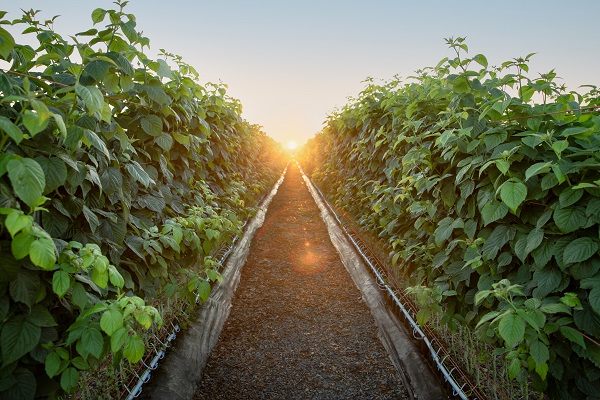
Over the last several years, we have been growing tray plants (strawberries) and long canes (brambles). We have learned a lot regarding growing systems, proper fertigation, timing of planting, and other important details to produce a plant that is fit for purpose for our customers. With this experience, we are now positioned to strategically scale this part of our operation to meet the growing demands of the industry and ensure that our customers will receive the high-quality plants they expect from us.
Now that we are growing in multiple climates, various plant types and varieties can grow in the optimal conditions that they require.
Variety development also plays a key role in the innovations that we are preparing for the market. We have been working with berry breeders around the world for decades in an effort to identify, import, trial, and then scale the best genetics for our customers.
As Nourse Farms continues to expand and innovate, what do you see as the most significant trends or opportunities in the controlled environment agriculture industry, and how is the company positioned to take advantage of these trends?
Berry consumers are demanding not only more berries but also higher quality berries. The strategic steps Nourse Farms is taking are a direct result of our response to the fact that berry production is moving from traditional outdoor growing areas towards indoor facilities near population centers. High-tech glasshouses and indoor vertical growing facilities require a plant type grown specifically for these high-capacity facilities to generate the return on investment that is required.
This is where the opportunity is for upstream suppliers like us. Our plants are grown specifically to meet this demand and give our customers the returns they need for their investments. The more growing we do—both of our plants and of our business—the more success for our customers.
 For more information on Nourse Farms, visit the company website.
For more information on Nourse Farms, visit the company website.
And, be sure to visit them in booth 317 at Indoor Ag-Con from March 11-12, 2024 at Caesars Forum in Las Vegas!
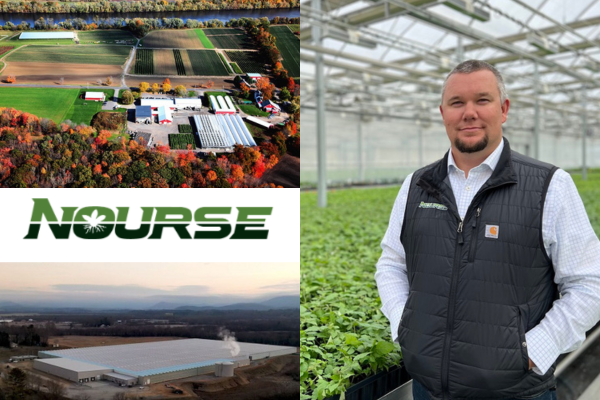
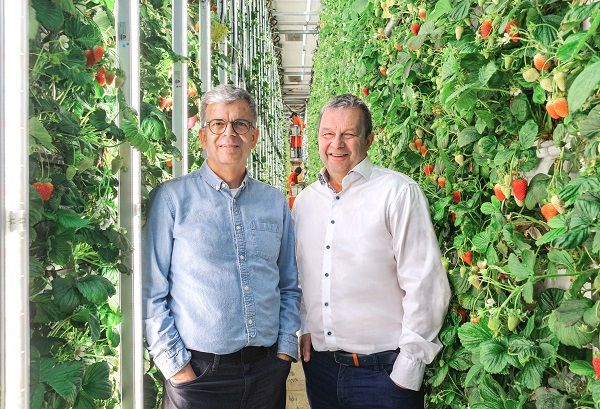

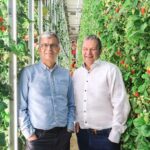
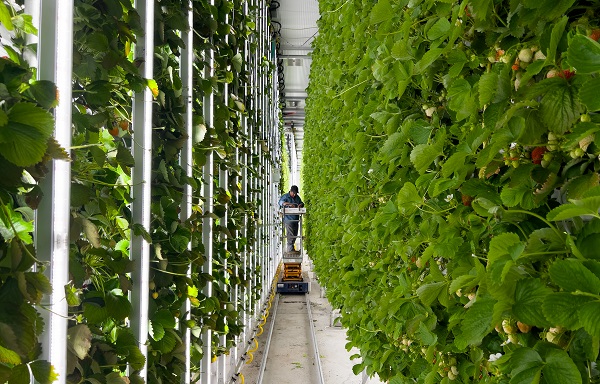 One of Winter Farm’s goals is to help growers replace 10% of Canada’s strawberry imports. Can you speak to some of the environmental and economic benefits that could come from achieving this goal, and how Winter Farm is working to make it a reality?
One of Winter Farm’s goals is to help growers replace 10% of Canada’s strawberry imports. Can you speak to some of the environmental and economic benefits that could come from achieving this goal, and how Winter Farm is working to make it a reality?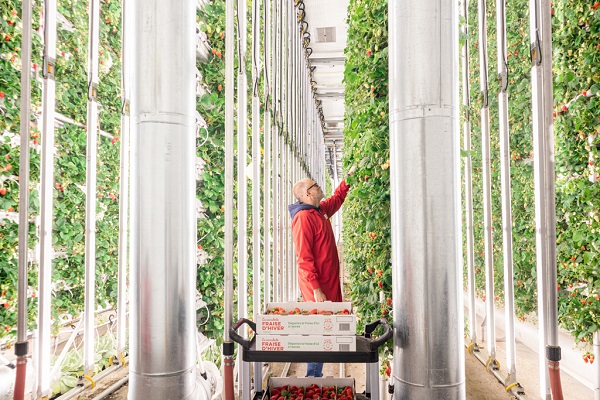
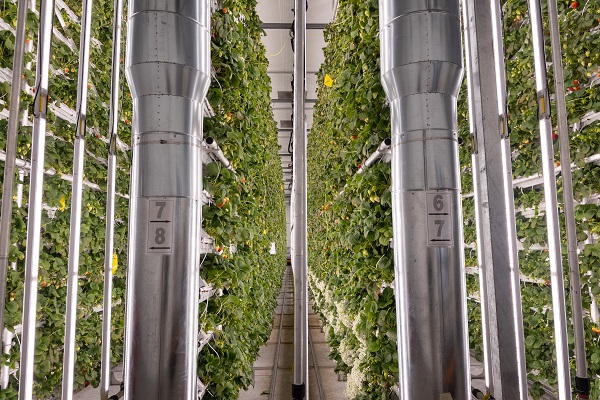 What do you see as the biggest opportunities for the CEA industry as a whole in years to come, and how is Winter Farm working to seize them?
What do you see as the biggest opportunities for the CEA industry as a whole in years to come, and how is Winter Farm working to seize them?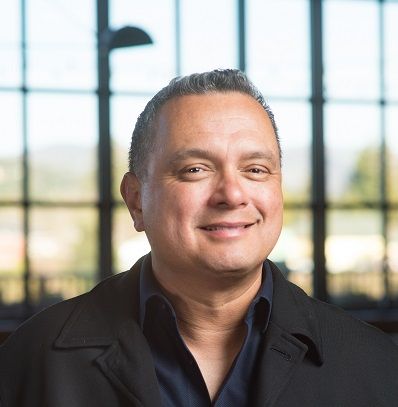
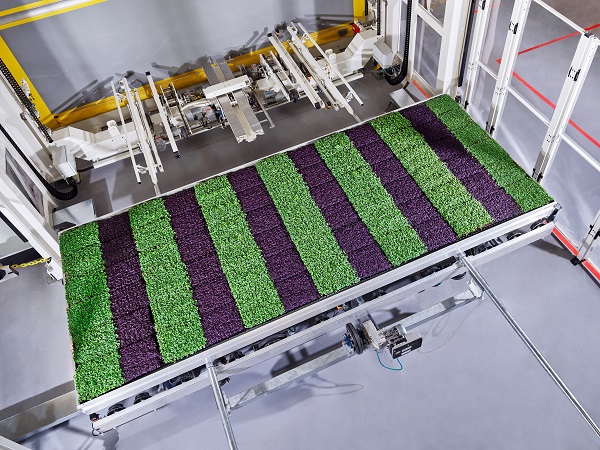 In September of 2022 Plenty announced plans to build the world’s largest indoor vertical farm campus near Richmond, VA. Can you share more details on this exciting project?
In September of 2022 Plenty announced plans to build the world’s largest indoor vertical farm campus near Richmond, VA. Can you share more details on this exciting project?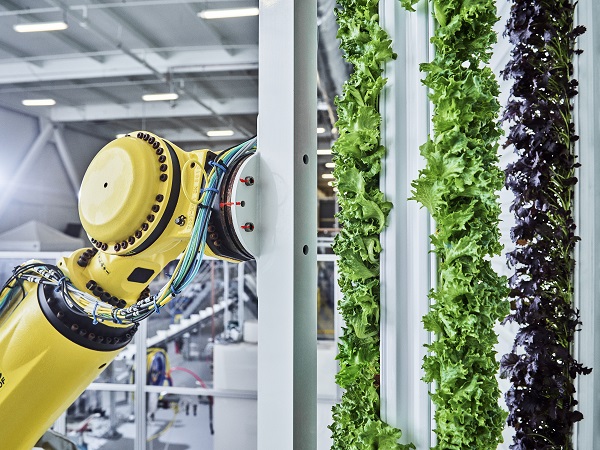
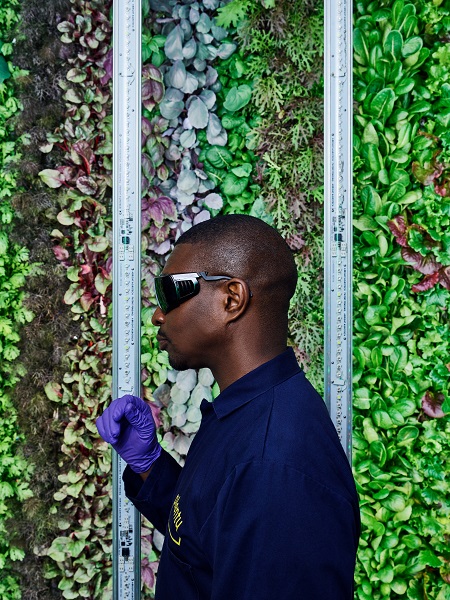 In your opinion, what are the key challenges that the CEA/Vertical Farm industry must overcome?
In your opinion, what are the key challenges that the CEA/Vertical Farm industry must overcome?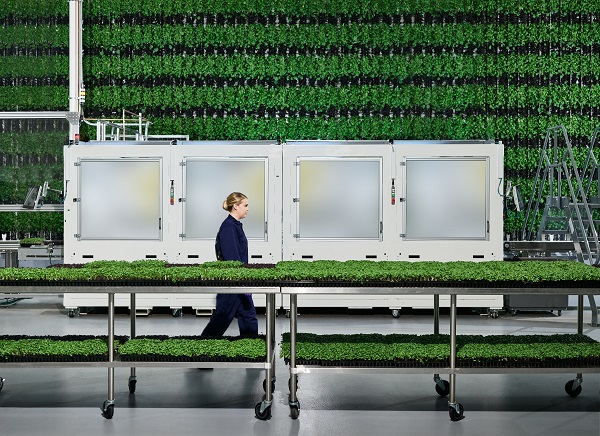 What’s next for Plenty?
What’s next for Plenty?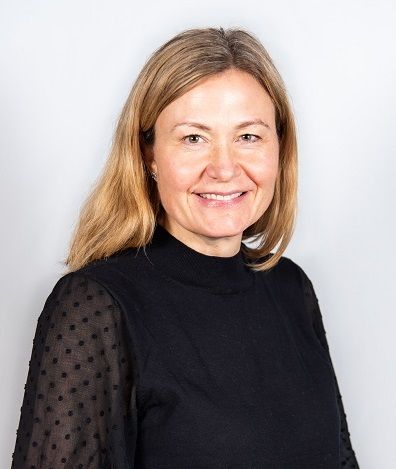
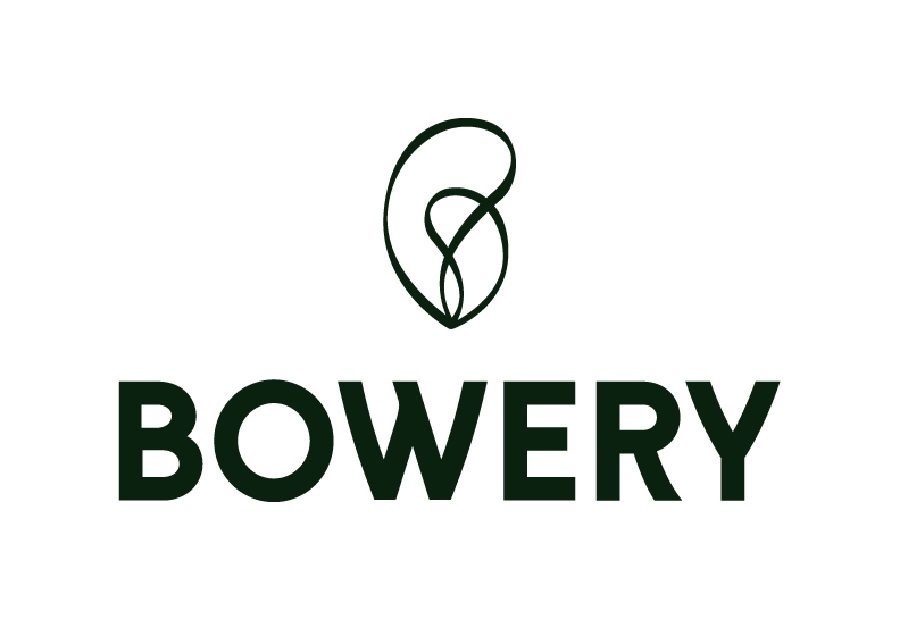 From the recent opening of its largest, most technologically advanced sustainable commercial smart farm in Bethlehem, Pennsylvania to its expansion into fruiting and vine crops with the launch of new strawberry varieties ,
From the recent opening of its largest, most technologically advanced sustainable commercial smart farm in Bethlehem, Pennsylvania to its expansion into fruiting and vine crops with the launch of new strawberry varieties , 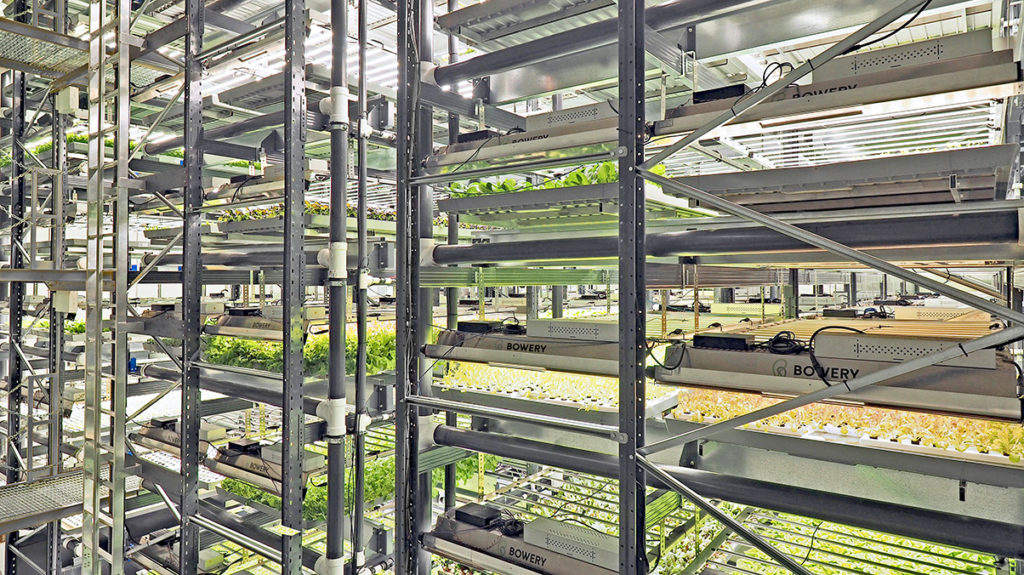 Investment in CEA comes down to two words: resiliency and sustainability. The past two years have made it painfully clear that climate change, global events, and supply chain disruption all have an enormous impact on our food systems. We need resiliency now more than ever before. By growing indoors, 365 days a year, with zero impact from drought, wildfires, or extreme temperatures, Bowery is growing a resilient supply of pesticide-free produce. And not only resilient, but predictable and reliable—we know, and therefore retailers know, exactly how much produce to expect, which cuts down on food waste.
Investment in CEA comes down to two words: resiliency and sustainability. The past two years have made it painfully clear that climate change, global events, and supply chain disruption all have an enormous impact on our food systems. We need resiliency now more than ever before. By growing indoors, 365 days a year, with zero impact from drought, wildfires, or extreme temperatures, Bowery is growing a resilient supply of pesticide-free produce. And not only resilient, but predictable and reliable—we know, and therefore retailers know, exactly how much produce to expect, which cuts down on food waste.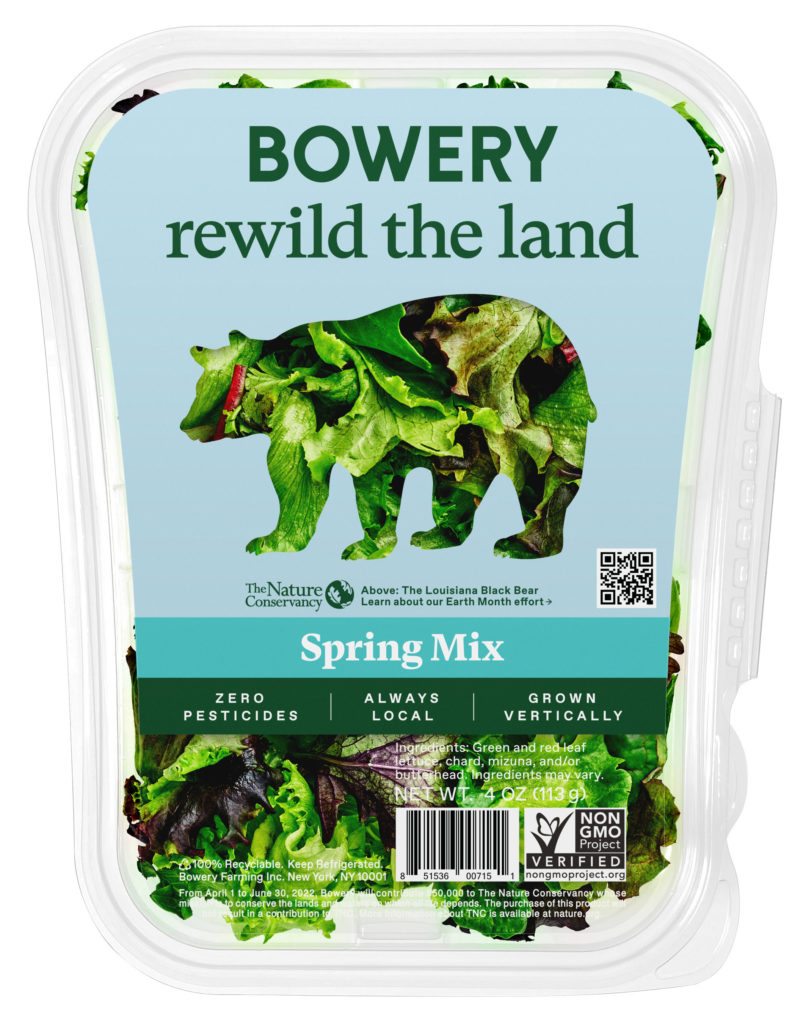
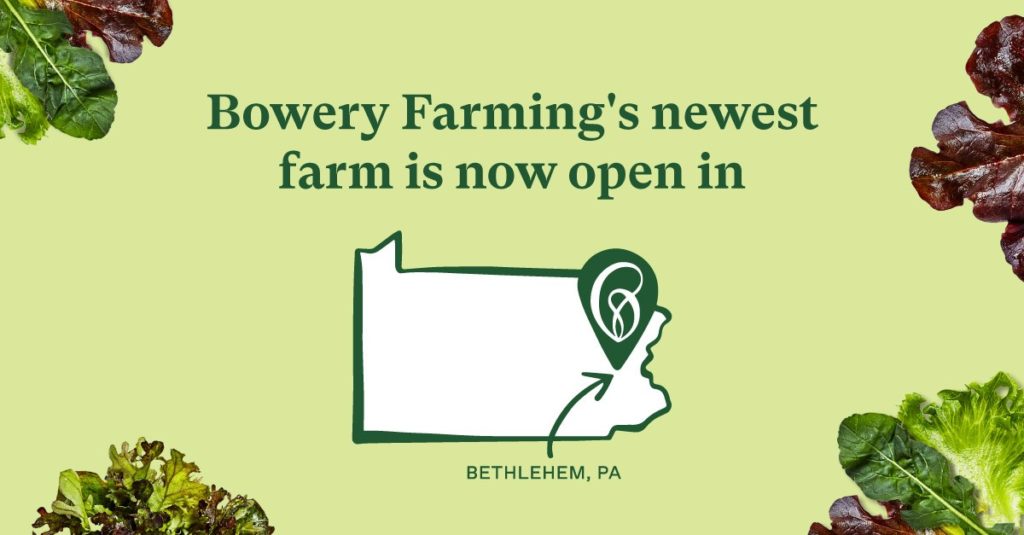 Bethlehem represents the next chapter in climate-smart agriculture at Bowery. The Bethlehem Farm, once a non-arable industrial site, is now modern farmland. This transformation from brownfield to vertical farm means that fresh, healthy food is now being grown, year-round, where it was previously thought no food would ever grow again.
Bethlehem represents the next chapter in climate-smart agriculture at Bowery. The Bethlehem Farm, once a non-arable industrial site, is now modern farmland. This transformation from brownfield to vertical farm means that fresh, healthy food is now being grown, year-round, where it was previously thought no food would ever grow again.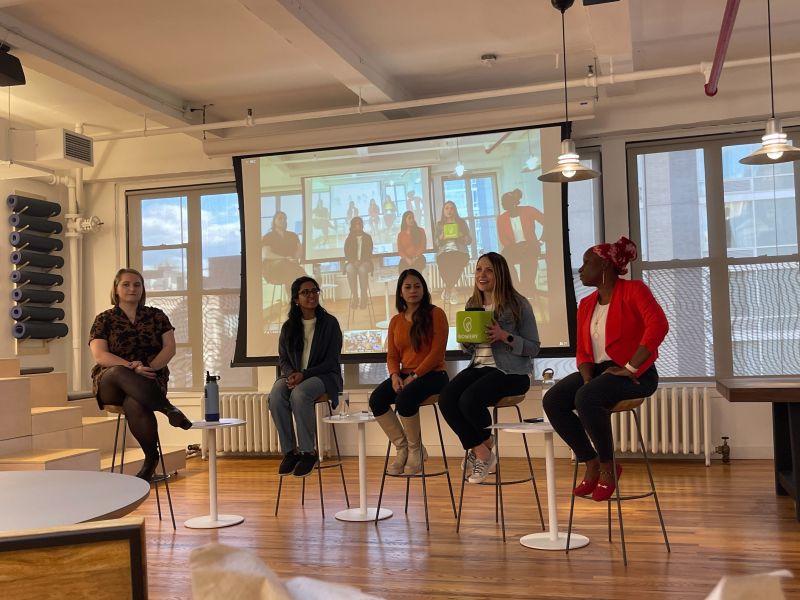 Over the course of my career, so many talented women leaders helped shape and inspire my path. I wouldn’t be where I am today without their encouragement and support. This background, where women fiercely support one another, led me to co-found aGirlculture at Bowery. The group brings together women of all levels to connect with peers and senior leaders. We’re creating a space for mentorship and other opportunities for personal and professional growth.
Over the course of my career, so many talented women leaders helped shape and inspire my path. I wouldn’t be where I am today without their encouragement and support. This background, where women fiercely support one another, led me to co-found aGirlculture at Bowery. The group brings together women of all levels to connect with peers and senior leaders. We’re creating a space for mentorship and other opportunities for personal and professional growth.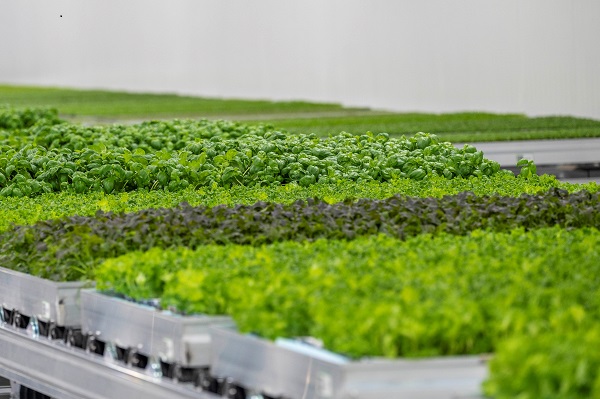 The Bethlehem Farm, our Smart Farm of the Future, is a model for what’s next at Bowery. We have two additional farms under construction in Locust Grove, Georgia and Arlington, Texas and we’re on track to double our number of farms by 2023, with the goal of helping to alleviate the strains insecurity puts on the U.S. food supply and economy.
The Bethlehem Farm, our Smart Farm of the Future, is a model for what’s next at Bowery. We have two additional farms under construction in Locust Grove, Georgia and Arlington, Texas and we’re on track to double our number of farms by 2023, with the goal of helping to alleviate the strains insecurity puts on the U.S. food supply and economy. On March 11, 2021 two international industry leaders,
On March 11, 2021 two international industry leaders, 